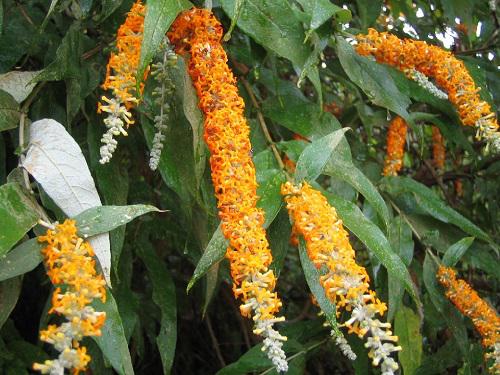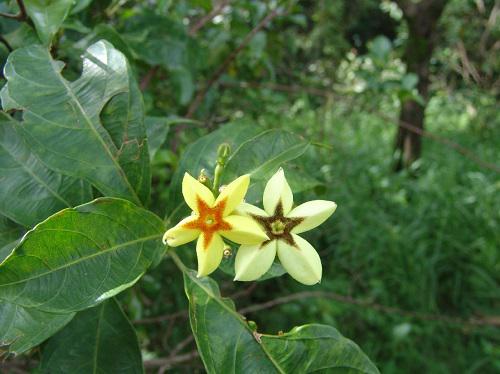Mark Nicholson
Other projects
This project focuses on the restoration of indigenous montane forest near Nairobi for the purposes of environmental education, biodiversity protection, restoration of ecological services, ecotourism and income generation from indigenous herbal supplements.

Buddleja polystachya.
Plants for Life International is a small Kenyan NGO run by the Director, Mark Nicholson. In 2001, Mark met with the Executive Director of the landowners, Brackenhurst Holdings, a conference centre, to discuss how to make the centre and its 40 ha (100 acres) more appealing to guests. Before 2000, most of the land was dominated by exotic plantation trees (eucalyptus, cypress and wattle) and even more so by aggressive, exotic invasive plants such as Solanum mauritianum and Cestrum aculeastrum. So we decided to get busy with chainsaws and began to turn most of the land back to indigenous forest, a process that we foresaw would take at least a decade. We established a small tree nursery and started planting.

Mussaena arcuata.
In 2003, we set up our autonomous NGO, Plants for Life International and got support from the Ford Foundation. PLI’s vision covers indigenous tree planting and forest restoration, environmental education and income generation from indigenous plants.
Over the past eight years PLI has collected more than 900 species of native trees, shrubs, lianas and herbs from all over Kenya (and some from Ethiopia, Tanzania and Uganda). Our accessions list is available on request. Our plants are growing in the forest and conference centre compound. We record scientific name, local name, provenance, and growth rate. We are particularly interested in lianas, lianes and scramblers that have been ignored in the past. Our prize specimens are three young plants of the large climber Embelia keniensis of which fewer than a dozen are known to exist. These took us five years to propagate successfully. The standard tree book of Kenya notes it was recorded once on Mt. Kenya in 1922 and also in Tigoni where almost all plants were destroyed for garden establishment.
In 2004, we started an indigenous herbal plant project, attempting to mainstream herbal plants onto farms (cultivation rather than wild harvest) that are used for ethno medicine. We recognised that in order to create local interest in indigenous plants, we need to show that there are income-generating possibilities in cultivating African plants while at the same time conserving/ expanding plant biodiversity. PLI now runs monthly courses on herbal medicine at BBIC where we discuss the taxonomy, nomenclature, uses, biochemical and pharmacological properties of the plants. We also have two demonstration gardens for herbs and indigenous flowers.
With the help of the Rufford Grant in 2008 we continue to expand until we can set up an ecotourism project. After eight years we are starting to have a canopy forest with numerous previously locally extirpated species of birds taking up residence once again. Our flagship and indicator species of fauna are gradually returning as the habitat comes back: Colobus monkeys, bush babies, porcupine, civet and genet cat, white-tailed and black-tipped mongoose, Hartlaub’s Turaco, Silvery-cheeked hornbill etc.